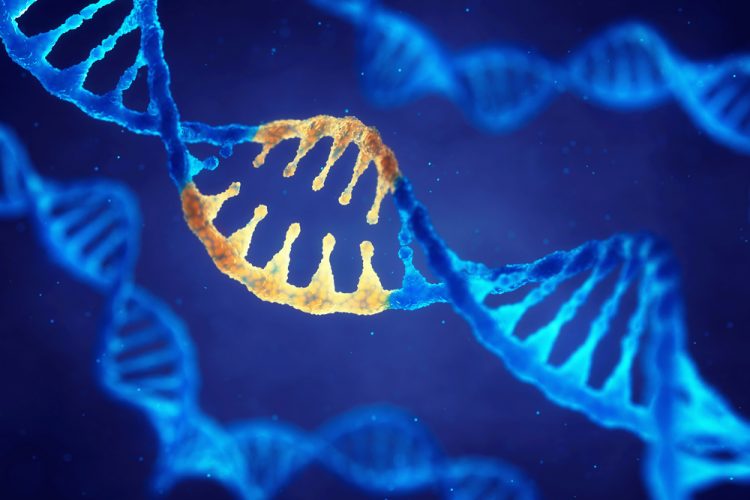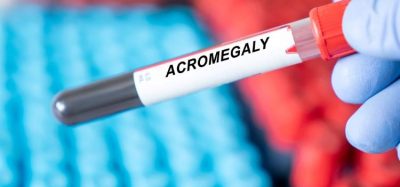bluebird bio releases new data on its gene therapy for cerebral adrenoleukodystrophy
Posted: 16 March 2021 | Hannah Balfour (European Pharmaceutical Review) | 1 comment
Data from nearly seven years of follow up suggests one-time treatment with eli-cel may durably stabilise cerebral adrenoleukodystrophy disease progression.


bluebird bio Inc. has released new data from the clinical development programme for its investigational elivaldogene autotemcel (eli-cel, Lenti-D™) gene therapy in patients with cerebral adrenoleukodystrophy (CALD).
CALD is the severest form of adrenoleukodystrophy (ALD), a rare X chromosome-linked disorder that is estimated to affect one in 21,000 male newborns worldwide. Roughly 40 percent of boys with ALD will develop CALD. ALD is caused by mutations in the ABCD1 gene that affect the production of adrenoleukodystrophy protein and subsequently cause toxic accumulation of very long-chain fatty acids, primarily in the adrenal cortex and white matter of the brain and spinal cord.
CALD is progressive and neurodegenerative, it causes the breakdown of the nerve cells in the brain that are responsible for thinking and muscle control. The disease is associated with six major functional disabilities (MFDs), which severely compromise a patient’s ability to function independently: loss of communication, cortical blindness, need for tube feeding, total incontinence, wheelchair dependence, and complete loss of voluntary movement.
CALD usually occurs in early childhood and progresses rapidly, if untreated, leading to severe loss of neurologic function and eventual death in most patients.
The new eli-cel trial data includes updated results from the Phase II/III Starbeam study (ALD-102) and the long-term follow-up study LTF-304. This includes that 90 percent (27) of the 32 patients enrolled in ALD-102 were alive and free of major functional disabilities (MFDs) at Month 24 (the primary endpoint of the study) and that there is no evidence of MFDs through nearly seven years (up to 82.7 months) of follow-up in the 27 patients who completed ALD-102 and enrolled in LTF-304.
The company also reported safety outcomes from the Phase III ALD-104 study. ALD-104 assessing the efficacy and safety of eli-cel in patients with CALD after myeloablative conditioning using busulfan and fludarabine. The primary safety endpoint is the proportion of patients with neutrophil engraftment after eli-cel infusion.
In ALD-104, the 19 patients currently treated with eli-cel have a median follow-up of 8.6 months. So far, 17/19 achieved neutrophil engraftment (pending in two patients as of data cut-off date) and 15/19 evaluable patients had platelet engraftment (pending in two patients who are awaiting neutrophil engraftment and in two additional patients as of data cut-off date). All patients with pending neutrophil or platelet engraftment had 35 or fewer days of follow-up.
So far, no events of acute or chronic graft versus host disease (GvHD) have been reported and there have been no reports of graft failure, graft rejection, cases of insertional oncogenesis or replication-competent lentivirus. The safety and tolerability profile is primarily reflective of the known effects of mobilisation/apheresis and conditioning.
“The progression of CALD may occur rapidly, leading to severe neurological decline, and often death, of boys with this disease. The results presented today show that at 24 months of follow-up, 90 percent of patients in our pivotal study of eli-cel (ALD-102) were alive and free of major functional disabilities. As we continue the long-term follow-up of these patients, we are encouraged that there are now 14 boys who have reached at least their Year 5 follow-up visit and continue to be living without MFDs, demonstrating the potential for a prolonged treatment effect,” said Dr Richard Colvin, Vice President, head of severe genetic diseases clinical research and development, bluebird bio. “There is a great need for alternative treatment options that reduce the risk of the serious immune complications associated with allogeneic stem cell transplantation, the current standard of care for CALD. Today’s presentation continues to illustrate the potential of eli-cel as a one-time, durable treatment option for this devastating disease.”
Eli-cel is a one-time investigational gene therapy which uses the Lenti-D lentiviral vector to add functional copies of the ABCD1 gene into a patient’s own haematopoietic stem cells ex vivo. Thereby, the treatment aims to stabilise the progression of CALD and consequently preserve as much neurological function as possible.
“These data from the Phase II/III Starbeam study show some potentially promising evidence with up to almost seven years of follow-up and nearly all patients have a stable neurologic function score (n=31/32), indicating that minimal neurologic function was lost following eli-cel infusion. In addition, there were no reports of graft failure, graft rejection or graft-versus-host disease,” said Dr Jörn-Sven Kühl, Department of Pediatric Oncology, Hematology and Hemostaseology, Center for Women’s and Children’s Medicine, University Hospital Leipzig, Germany. “These long-term results therefore suggest treatment with eli-cel may durably stabilise disease progression and consequently preserve as much neurological function as possible in boys with CALD.”
For further trial results click here.
Related topics
Clinical Trials, Drug Development, Drug Safety, Gene therapy, Genomics, Research & Development (R&D), Therapeutics
Related organisations
Related drugs
Related people
Related diseases & conditions
Adrenoleukodystrophy (ALD), Cerebral adrenoleukodystrophy (CALD)










Please, Please, Please find a cure for ALD!!